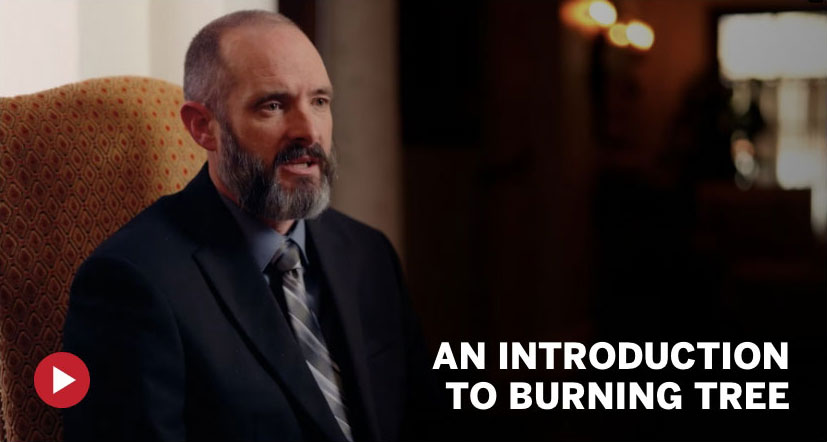When Should Private Wealth Managers Refer a Client to Long-Term Addiction Treatment?
Private Wealth Managers, who oversee the financial portfolios of high-net-worth individuals, are uniquely positioned to notice when personal issues, such as substance use disorders (SUD), begin to impact their clients’ financial health and overall well-being. In our experience, there are some critical circumstances under which they might refer a person to long-term, chronic addiction treatment.
Who We Are
Burning Tree Ranch is a specialty program dedicated to the treatment of chronic addiction and mental health. Our program is long-term, progress-based, and highly intensive. Since 1999, we have supported countless referring professionals in delivering ethical, high-quality solutions to the clients and families they represent.
Circumstances for Referral to Long-Term Treatment
Erosion of Financial Assets
Observing a consistent pattern of unexplained financial loss or erosion of assets that could indicate money being spent on sustaining an addiction.
Irresponsible Financial Behavior
Noticing erratic financial behavior, such as impulsive investments, large and unusual withdrawals, or requests for loans without a clear rationale, which could suggest an underlying issue like addiction.
Impact on Family Financial Planning
When substance use disorder starts affecting the client's ability to participate in family financial planning or threatens the financial security of the family, prompting concerns about the management of wealth and inheritance.
Legal and Financial Repercussions
Encountering legal problems, such as DUI charges or other legal issues related to substance use, which could have financial repercussions and tarnish the client’s reputation.
Direct or Indirect Admissions
Receiving direct admissions from the client about their struggles with substance use or indirect hints through conversations that suggest they might be facing issues with addiction.
Observations Informing the Need
In these situations, a Private Wealth Manager’s responsibility involves more than just managing assets; it extends to acting in the client’s best interest, which may include addressing health issues impacting financial stability. By approaching the subject with sensitivity and discretion and offering resources or referrals to addiction treatment services, wealth managers can play a crucial role in supporting their clients’ journey to recovery while safeguarding their financial well-being.
Changes in Communication Patterns: A reduction in communication or a noticeable change in the client’s responsiveness and engagement in financial matters.
Physical and Behavioral Signs: Visible signs of addiction or behavioral changes observed during meetings, such as physical deterioration, signs of withdrawal, or erratic behavior.
Shifts in Priorities: A sudden shift away from previously stated financial goals or a lack of interest in financial planning, which might indicate that the client’s focus has been diverted due to struggles with substance use.
Financial Strain on the Family: Hearing concerns from family members about the client’s financial decisions or observing financial strain on the family that could be linked to the client’s substance use.
Increased Secrecy Around Finances: The client becoming more secretive or defensive about financial matters, which may be a sign of trying to hide the financial impact of their addiction.

Navigating Client Relationships: When Estate & Probate Attorneys Encounter Addiction
The responsibility of a Private Wealth Manager to recommend long-term chronic addiction treatment to a client encompasses a blend of professional duty and ethical concern for the client’s overall well-being. While their primary role focuses on managing and growing the client’s financial assets, they are often in a unique position to observe behaviors or financial patterns indicative of underlying issues, such as substance use disorders (SUD), that may jeopardize the client’s financial stability and personal health.
Ethical Duty and Professional Boundaries
Wealth managers have an ethical duty to act in their client’s best interests, including recognizing when personal issues like addiction may harm their financial and overall well-being.
Any discussion about personal issues such as addiction must be approached with the utmost sensitivity and respect for the client’s privacy and dignity. Confidentiality is paramount.
Observational Acumen and Judgment
Private Wealth Managers may notice financial indicators of addiction, such as unusual spending habits, requests for unusual withdrawals, or a general decline in financial prudence. Recognizing these signs requires a careful balance between professional insight and personal concern.
Understanding how SUD can impact financial planning, asset management, and the client’s ability to meet long-term goals is crucial. This understanding informs the wealth manager’s responsibility to act.
Communication and Referral
While wealth managers are not health professionals, they can provide valuable referrals to addiction treatment specialists or programs, acting as a bridge to help clients access the necessary support.
Information about available resources, including reputable treatment facilities or support groups, can be part of their role, provided it is done with consent and discretion.
Support and Follow-Up
Beyond the initial recommendation, wealth managers can offer ongoing support by adjusting financial plans to accommodate treatment costs or being a consistent point of contact for clients navigating recovery.
In some cases, coordinating with the client’s family, legal advisors, or healthcare providers (with the client’s permission) can ensure a comprehensive support network.

Financial Incentives for Recovery: Wealth Managers' Strategies for Encouraging Treatment
A Private Wealth Manager can play a pivotal role in motivating clients to seek and complete treatment for substance use disorder (SUD) by leveraging their trusted relationship and financial expertise. Here’s how they might create motivation and incorporate leverage for treatment:
CREATING MOTIVATION FOR TREATMENT
- Linking Financial Health to Personal Recovery: By illustrating how overcoming addiction can lead to improved financial stability and the achievement of personal and family financial goals, a wealth manager can create a compelling argument for treatment.
- Highlighting the Impact on Family Legacy: Emphasizing the potential adverse effects of substance use on the family’s legacy and future generations can motivate a client to seek treatment to protect the family’s name and assets.
- Educating on the Cost of Addiction: Providing a detailed analysis of how addiction is draining the family’s resources, including potential future costs, can motivate a client by making the financial implications of their addiction tangible.
- Personalizing the Approach: Sharing success stories of other individuals who have recovered from addiction and rebuilt their financial and personal lives can offer hope and motivation.
Incorporating Leverage for Treatment
- Conditional Financial Support: Implementing financial incentives for seeking treatment, such as making certain distributions or financial benefits contingent upon entering and completing a treatment program.
- Trust and Estate Planning Conditions: Working with attorneys to include provisions in trusts or estate plans that require treatment compliance for beneficiaries struggling with SUD, thus using the estate planning process as leverage for recovery.
- Facilitating Access to Treatment: Offering to help coordinate and finance the treatment process using the client’s resources, thereby removing barriers to access and simplifying the decision to seek help.
- Setting Financial Milestones: Creating financial milestones linked to recovery progress, such as investment opportunities or trust disbursements that become available upon reaching certain treatment milestones.
- Engaging Family Support: Organizing family meetings to discuss the importance of treatment and recovery for the individual’s well-being and the family’s financial health and unity, thereby creating a support system that encourages treatment.
By strategically leveraging their role and the financial tools at their disposal, Private Wealth Managers can create a powerful incentive for clients to pursue recovery, aligning the process with the family’s immediate and long-term economic well-being. This approach underscores the wealth manager’s commitment to serving the family’s best interests, encompassing financial stability and personal health.
Considering Long-Term Treatment for Your Client
The Need to Act
What are the circumstances under which you may refer a person to long-term, chronic addiction treatment? What are you observing that informs you of the need to act?
Fiduciary Duty
Do you have a moral or fiduciary responsibility to make a recommendation for long–term chronic addiction treatment for your client?
Motivation for Completing Treatment
What motivation for treatment might you be able to create as a trusted professional serving a family’s best interest? How might you incorporate leverage for the client to go and complete treatment?

We've Worked Closely with Finance Professionals to Refer Clients to Burning Tree for Long-Term Treatment
How Do I Know If My Loved One is a Fit for Burning Tree Ranch?
Authentic Long-Term Treatment
Burning Tree specializes in treatment for Chronic Relapse
We understand the complex, multi-faceted issues many of our families face when it comes to addiction. The circumstances of long-term residential treatment allow us to create a treatment program unlike anything else in the world.
Operating outside the limitations of a traditional 30, 60 or 90-day format, Burning Tree adheres to progress-based metrics that inform the clinical treatment team of the unique mental, emotional and spiritual needs of the individual.
We are the only treatment center in the United States that combines time-intensive residential treatment with a therapeutically coordinated aftercare program focused singularly on the treatment of chronic relapsers.
Featured In Top Publications













